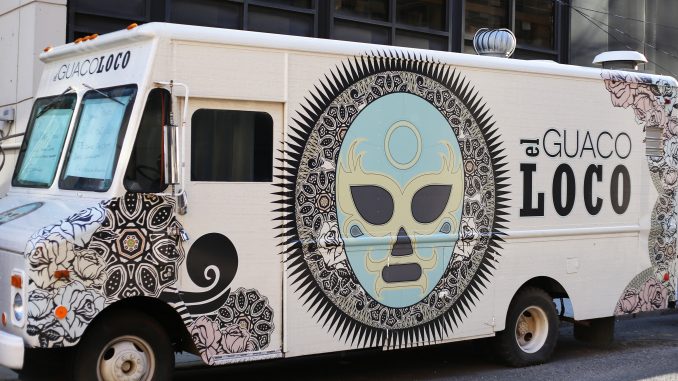
The owner of a Main Campus food truck said he was denied permission to hook up to power lines after officials from the city’s Department of Licenses and Inspections indicated the university would consolidate food trucks to only a few streets to create a “vending district.”
Rafael deLuna III, the associate director of sustainability at the University of Pennsylvania and current co-owner of El Guaco Loco, a new Mexican food truck located on Montgomery Avenue near Klein Hall, told The Temple News the previous occupant of the spot took the installed electric meter that was used to power the truck when he left Main Campus.
DeLuna said in posts on El Guaco Loco’s Facebook page that the city denied PECO permission to install a new meter because Temple was going to create the vending district that would allow a limited number of food trucks.
Jim Creedon, vice president for construction, facilities and operations, said plans for a vending district “are not imminent.” He added that the university has talked with the city about potential changes, but no action will be taken any time in the near future.
“There’s a possibility down the road of creating a parking lot where trucks can permanently be, but I don’t see that happening in the near term,” Creedon said. “It was a concept that was developed as part of our landscape plan. … We’re wrestling with it.”
L&I, which handles permits, certificates and vending licenses for food trucks, did not respond to multiple requests for comment.
DeLuna said he and his brother Ronaldo, the other co-owner of the truck, were told to ask for a letter of support for a new meter from Councilman Darrell Clarke, whose district includes Temple, and were told that no meters are allowed to be installed.
“We’re going to run [the truck] by generator instead of a meter for now, which we don’t want to do because that’s not sustainable,” deLuna said.
Currently, there are food trucks and carts along Montgomery Avenue, Norris, 13th and 12th streets which offer a variety of options and include several ethnic foods. The seven establishments at the 12th Street Food Pad Vendors, more commonly referred to as “The Wall,” were former food trucks.
“We like the food trucks on campus; there’s an availability of food options, it gives an urban feel,” Creedon said. “We want to create an environment where people can take advantage of what the food trucks have to offer. … But it doesn’t come without its problems.”
This isn’t the first time City Council was called to intervene in Temple’s food truck scene. In 1986, then-Councilman John Street had lobbied to ban vending in areas on Main Campus after his brother Milton, now a mayoral candidate, was told his food truck was illegally parked and partially in a crosswalk, according to a Daily News story from that year.
Milton Street got his start in city politics while serving as a food truck vendor at Temple in the 1970s, according to that story.
Creedon said the main issue with the abundance of food trucks on campus is many of them are immobile.
“What’s frustrating is their business is on wheels and could move, but they just set up camp here,” he said. “They become permanent fixtures.”
Food trucks and carts are permitted to park along the street curbs, but are not allowed on sidewalks or alongside buildings which are Temple property, Creedon said. He added that any food vendor must meet the requirements for inspection and licensing, but there is no way to guarantee that all of the vendors on campus are qualified.
The university also does not receive any economic benefits from the food trucks, Creedon added.
Creedon said the university’s main concerns are with safety. Some trucks and carts house propane tanks that are in close proximity to buildings. Furthermore, trucks which are lined up outside doorways to buildings potentially block emergency exits for large numbers of people.
Lian Parsons can be reached at lian.parsons@temple.edu or on Twitter @Lian_Parsons.


Be the first to comment